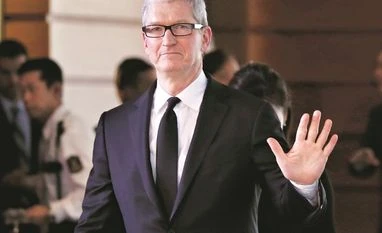Epic Games, the maker of the popular game Fortnite, sued Apple last year seeking to allow apps to avoid the 30 per cent commission that the iPhone maker takes on many app sales. On Monday, the trial concluded with Judge Yvonne Gonzalez Rogers of the US District Court for the Northern District of California pressing the companies on what should change in Apple’s business, if anything. The decision over the case, as well as the future of the $100 billion market for iPhone apps, now rests in her hands. Judge Gonzalez Rogers has said she hopes to issue a verdict by mid-August.
Yet even in an era of antitrust scrutiny of the world’s biggest tech companies, the trial showed how difficult it was to take on a $2.1 trillion corporate titan like Apple. To sue Apple, Epic spared little expense. The games maker sacrificed a valuable product when Apple yanked the Fortnite iPhone app — which had generated over $1 billion in sales — from the App Store. Epic also spent millions on lawyers, economists and expert witnesses. Yet it still began the trial at a disadvantage because antitrust laws tend to favour defendants, according to legal experts who tracked the case. While Judge Gonzalez Rogers signalled openness to Epic’s arguments, a ruling in favour of the video game maker might not lead to momentous changes in the market for mobile apps. Any verdict is also likely to be tied up in appeals for years, at which point rapid change in the technology industry could leave its effects obsolete.
The case focused on how Apple wields control over the iPhone App Store to charge its commission on app sales. Companies have argued that the fee shows Apple is abusing its dominance, while Apple has responded that its cut of sales helps fund efforts to keep iPhones safe. On Monday, Judge Gonzalez Rogers’s comments suggested that she believed Apple deserved to profit from its innovations. But she also questioned some of the ways it sought to do so.
“The 30 per cent number has been there since the inception. And if there was real competition, that number would move. And it hasn’t,” she said of Apple’s commission on app sales. She also said that it was anticompetitive for Apple to ban firms from telling customers that they could buy items outside iPhone apps. At other times, she appeared reluctant to force Apple to change its business.
“Courts do not run businesses,” she said. The judge has said she expects her ruling to be appealed to the US Court of Appeals for the Ninth Circuit. If it is, a three-judge panel in that court could review her decision. Apple or Epic could then try to appeal that ruling to the US Supreme Court.
To read the full story, Subscribe Now at just Rs 249 a month
Already a subscriber? Log in
Subscribe To BS Premium
₹249
Renews automatically
₹1699₹1999
Opt for auto renewal and save Rs. 300 Renews automatically
₹1999
What you get on BS Premium?
-
Unlock 30+ premium stories daily hand-picked by our editors, across devices on browser and app.
-
Pick your 5 favourite companies, get a daily email with all news updates on them.
Full access to our intuitive epaper - clip, save, share articles from any device; newspaper archives from 2006.
Preferential invites to Business Standard events.
Curated newsletters on markets, personal finance, policy & politics, start-ups, technology, and more.
Need More Information - write to us at assist@bsmail.in
)